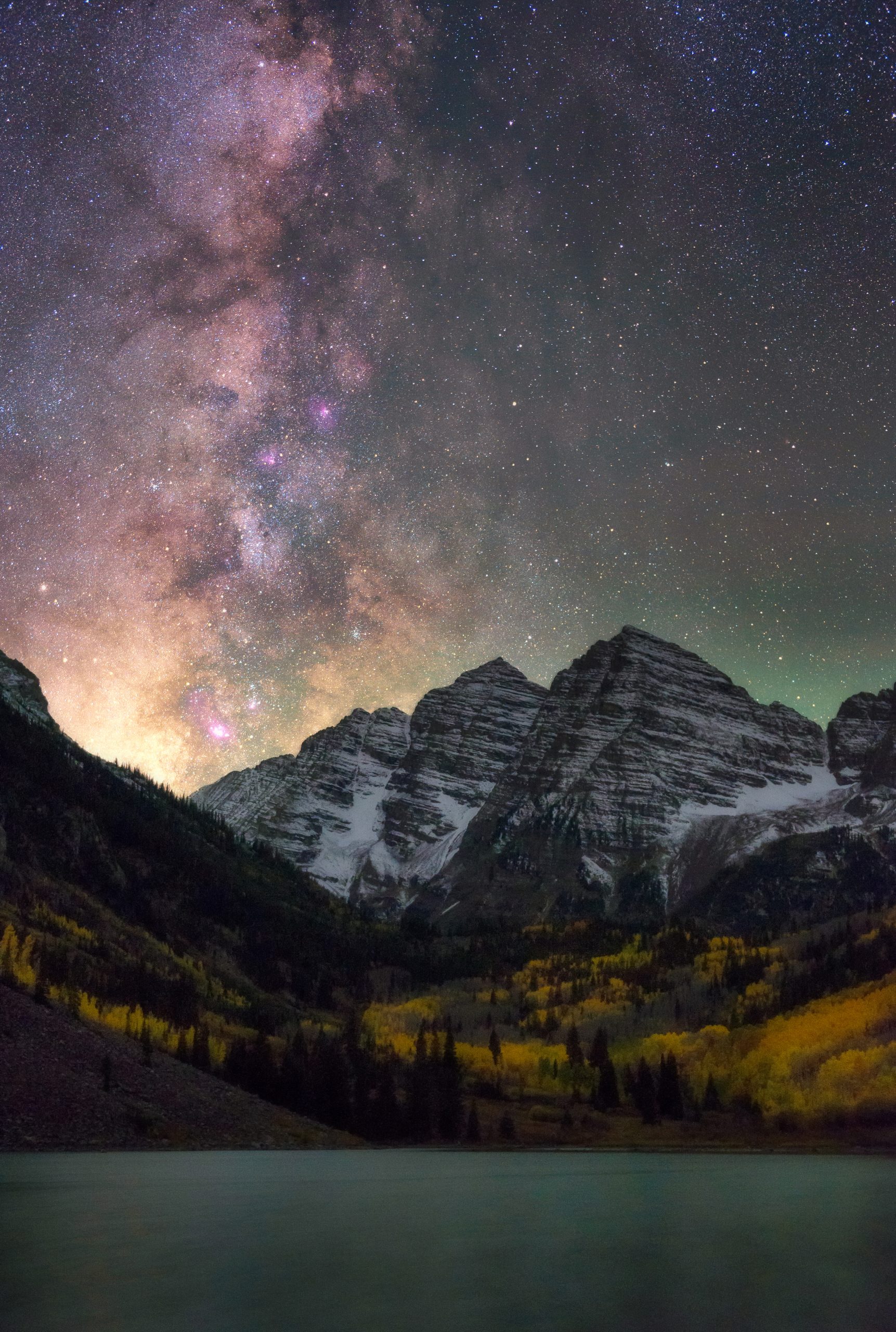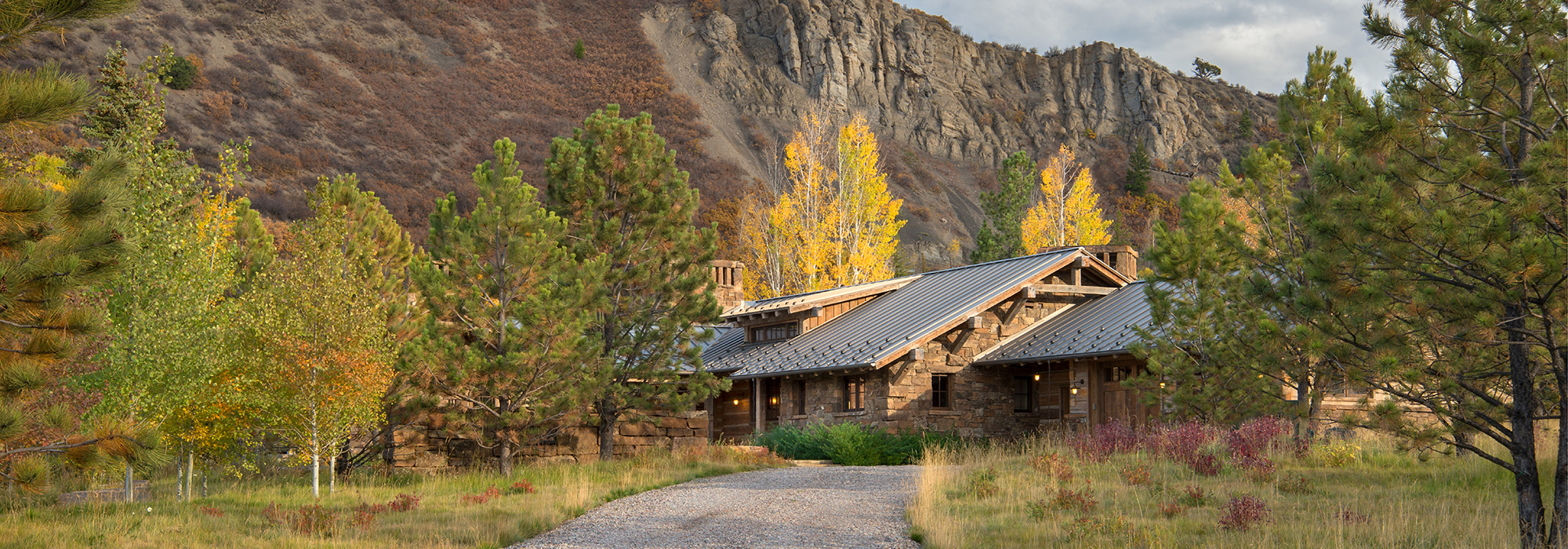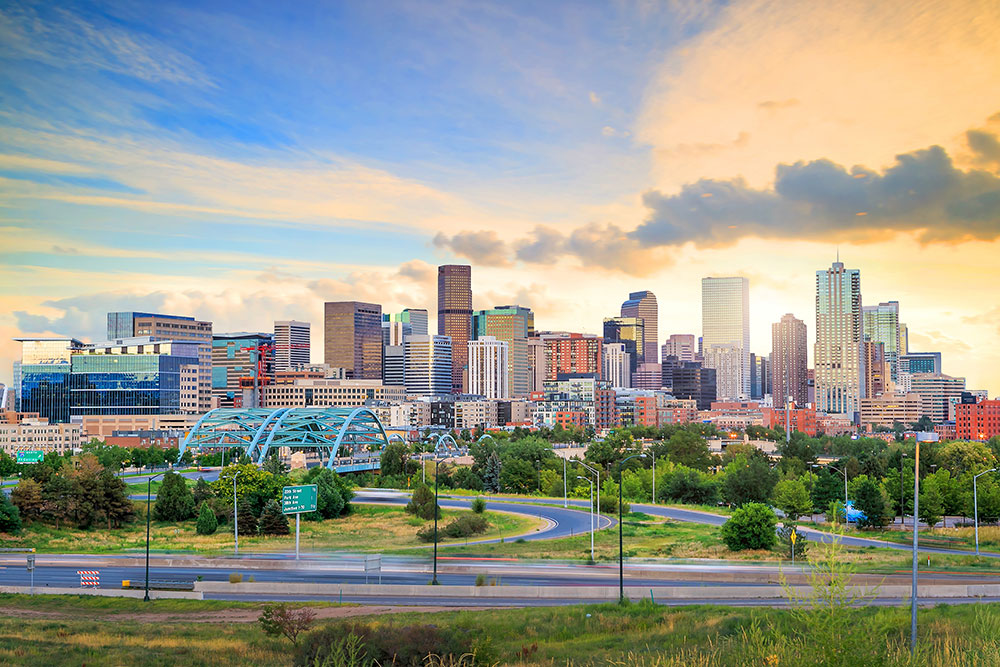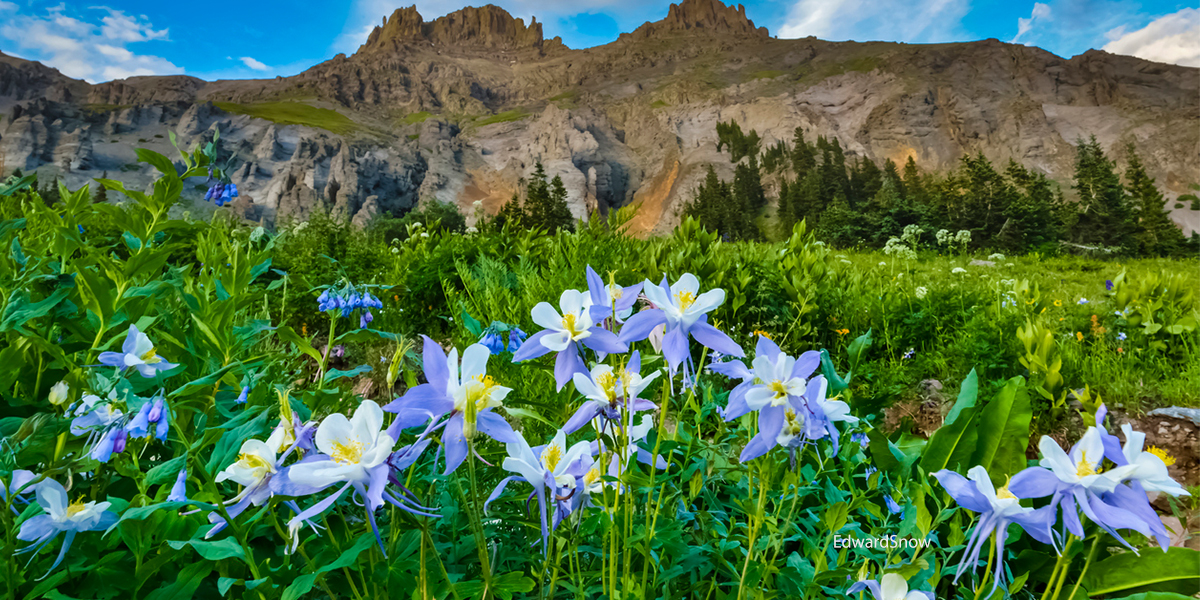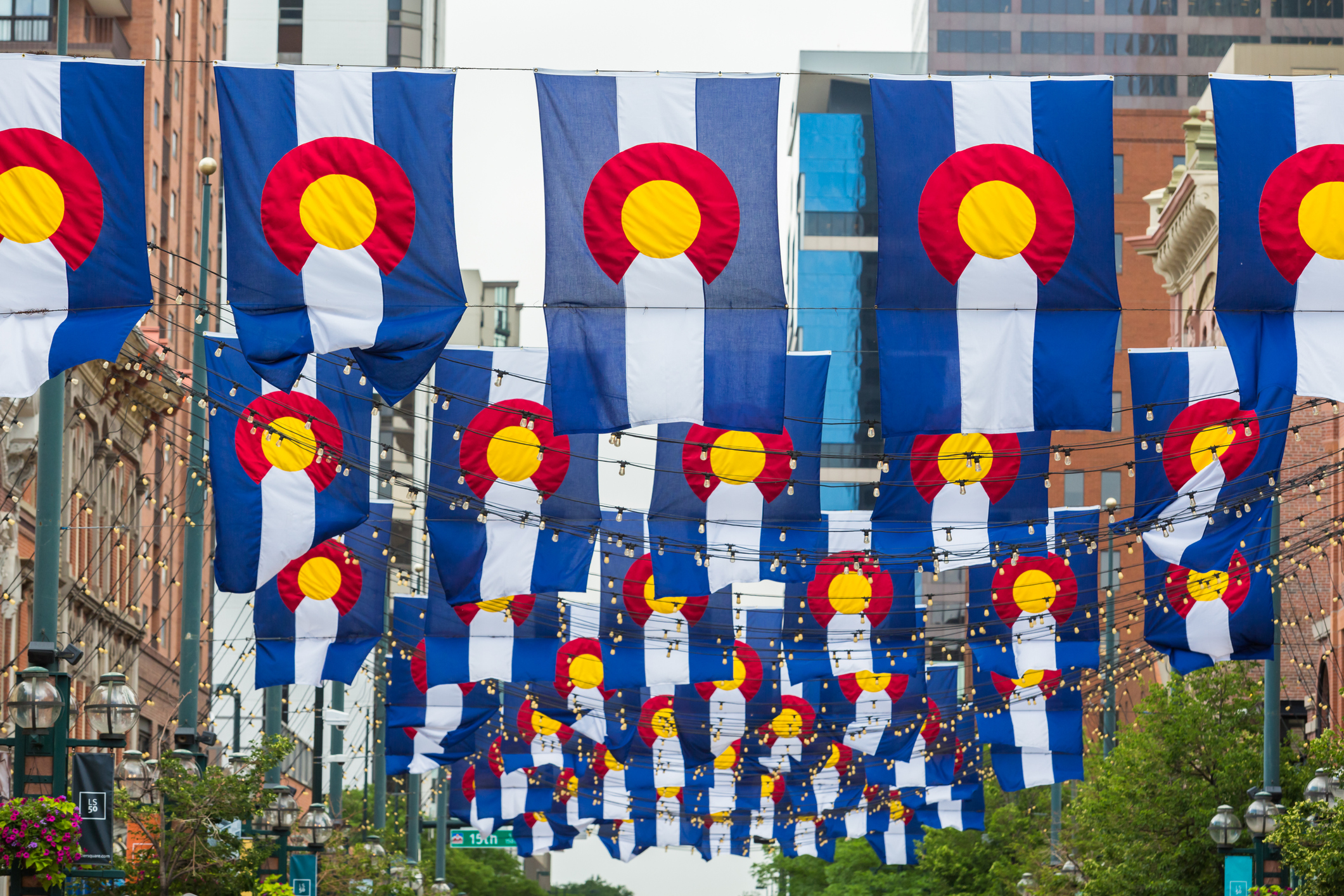Stargazing in Colorado
Best Stargazing in Colorado
Stargazing in Colorado is some of the best around. Due to the diverse terrain and large amounts of public land, finding dark places to look at the sky is much more possible. When did you last take a moment to stargaze in Colorado's night sky? If you live in a city or well-populated area, you might only spot a handful of bright stars shining, but if you live in the plains or the mountains, you’ll probably see a lot more. Light pollution washes out starlight, especially from sky objects like nebulae or galaxies. These have a lower surface brightness than the stars seen from populated areas. Because of this, most Americans can’t even see the Milky Way when they look up at the stars at night.Dark Skies in Colorado
Areas without significant light pollution are known as Dark Skies, which the International Dark Sky Association protects. Luckily for us, Colorado is home to a few of them, so next time there’s a meteor shower in the forecast, or you’ve got a hankering for some stargazing in Colorado, here’s a quick guide about how to do it best.Where Can I Go Stargazing in Colorado?
There are only about 130 International Dark Sky Places in the world where communities, parks, or preserves have a gorgeous nighttime view and make a conscious commitment to protecting the visibility of the beautiful night sky. Colorado has two IDSP parks and two IDSP communities where stargazing in Colorado is fantastic.Black Canyon of the Gunnison National Park
At Black Canyon of the Gunnison, they say, “Half the park is after dark!” This incredibly beautiful gorge is stunning during the daytime, but viewing a darksky awash with stars gives the park an extra dimension of beauty. If you’re on the South Rim of the canyon, head to Chasm View, Dragon Point, or Sunset View for an incredible stargazing spot, and if you’re on the North Rim, try Chasm View Nature Trail or Kneeling Camel View.Great Sand Dunes National Park
Another of Colorado’s four national parks—Great Sand Dunes—is spectacular for stargazing in Colorado and accessible for families or people who aren’t up for a long hike. Great Sand Dunes National Park offers night programs during the summer months where you can learn about nighttime wildlife, astronomy, and more.Westcliffe and Silver Cliffe
These two adjacent towns are about an hour west of Pueblo, known as an International Dark Sky Community. They were the first places in Colorado to be recognized as Dark Sky locations. These days, if you pay them a visit after dark, you can watch the stars at a Star Party in Bluff Park or from Smokey Jack Observatory, where a massive, fancy Schmidt-Cassegrain telescope awaits you.Norwood
The Norwood community in the Southwestern area is the first Dark Sky Community in Colorado. In Norwood, a dedicated group of astronomers have teamed up to educate their community about the night sky. These efforts have made their home a great place to see it. With educational Star Parties, you can use their telescopes to check out the skies. They write regular news articles and columns about astronomy in their local papers. Norwood is a place to learn about the stars, whether daytime or night. (But especially at night!)Other Stargazing in Colorado Locations
These are just the IDSP locations in Colorado, but there are countless other places where you can get a great night sky view. Generally, stargazing is better west of the Continental Divide or south of Colorado Springs (far from the lights of the Front Range cities). Higher elevations mean less atmosphere between you and the stars, and open spaces mean more sky for you to look at. Some popular locations for stargazing include:- Rocky Mountain National Park
- UFO Watchtower in the San Luis Valley
- Pawnee National Grassland
- Echo Lake near Mount Evans
- Canyons of the Ancients National Monument in Cortez.
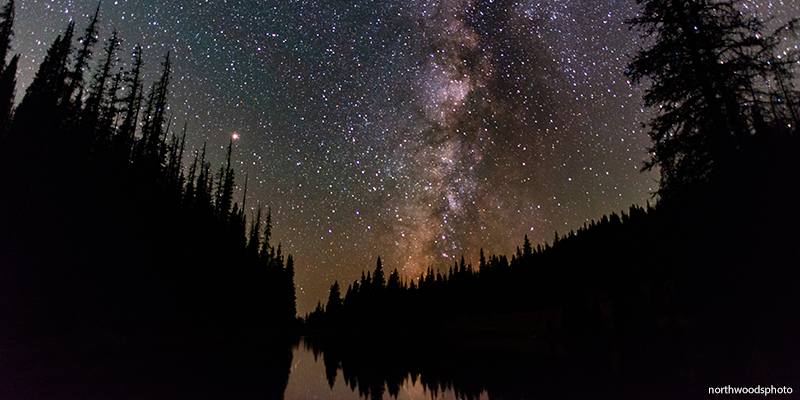
When Is the Best Time to Stargaze in Colorado?
First and foremost, stargazing is best done at night, but there’s a bit more to it. Even if you’re in a dark space with no artificial light for miles around you, there’s still one significant source of light pollution in the sky: the moon. You’ll see the stars best on moonless nights or nights when the moon rises late in the evening. Check out a moon calendar to find the date of the next new moon and your local weather forecast. Stargazing in Colorado is best on a clear night with little to no moon.Find the Best Time, Season for Stargazing in Colorado
Other timing issues to consider are the seasons. The best view of the Milky Way is when it's high and clear in the sky. This occurs during late summer and fall. If you’re looking for specific constellations, some are only visible during certain times of the year, and some can only be seen from particular places worldwide. You might also want to be on the lookout for celestial events like meteor showers, comets, lunar eclipses, or planetary events. These events make stargazing in Colorado exciting and can turn the event into a scavenger hunt or a contest.Do I Need Equipment for Stargazing in Colorado?
When it comes down to it, all you need for stargazing are your eyes, but a few items will make the experience more vivid. There are billions of stars in the night sky. Only a relative handful are visible to the naked eye, so if you want to expand your stargazing experience, borrow or invest in a pair of astronomy binoculars. These binoculars are lightweight, relatively inexpensive, and will help you spot loads of stars you couldn’t see otherwise.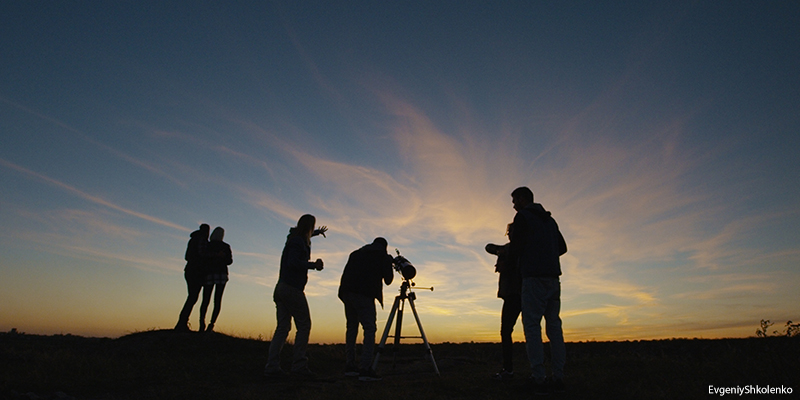
Finding Constellations, Planets, and Stars
But if you’re looking for something specific in the night sky—a faraway galaxy, nebula, or a particular star- you might want to invest in a telescope or borrow one from a friend. It’s a higher cost, and you can get a lot out of your stargazing without one, but if you’re serious about astronomy, it's a solid investment. The tripod means you’ll be able to stabilize your view. As much as you might think you have a steady hand, looking so far away with handheld binoculars does not work well. There are numerous types of telescopes out there to suit a wide variety of budgets and needs, so do some research and find something that will work for you. One of the most straightforward and accessible bits of equipment for stargazers is an astronomy app. Apps use GPS data to help you identify what you’re looking at or direct you to where to point your telescope.What’s the Best Way to Stargaze in Colorado?
There’s no absolute BEST way to stargaze in Colorado because it depends on what you're after. Maybe you’re looking for a romantic evening with your special someone. In this case, you might need a blanket, a stargazing app, and a quiet, open alpine meadow. Or maybe you’re getting into the astronomy aspect of it all, and you want to check out an observatory to use their fancy telescopes. These choices are all up to you. Here are a few tips and practices to help you get the most out of your experience.Ditch the Flashlight
Did you know that the light of a flashlight can ruin your night vision for more than 30 minutes after you turn it off? That’s half an hour of wasted time you could be spending stargazing! Use a red light so you don’t wreck your night vision. Try to navigate in the dark to let your eyes fully adjust. If you don’t have a red flashlight, use a rubber band or tape a piece of red cellophane or paper over your flashlight.Don’t Forget Where You Parked
If you’re camping for the night, that’s one thing, but if you’re driving out for an evening under the stars, make sure you drop a pin on your phone to remember where your car is parked. Keep an eye on your wandering so you don’t get lost in the dark. Use a trail when possible, and stop occasionally while walking to reorient yourself.Use All of Your Senses
Part of stargazing is relaxing and allowing yourself to feel like you’re part of something bigger. Close your eyes for a minute and listen to the sounds around you—maybe there’s the soft rush of a river or stream, the hoot of an owl, or the call of a coyote in the distance. Spend a moment sharpening your senses of hearing and smell, and then jump back into looking at the night sky. You might find it takes your experience to a whole new level.Be Considerate
Some locations listed in this piece can get pretty busy at night, especially if there’s an eclipse or meteor shower. Be considerate of other stargazers. That means you should be especially careful when using lights so you don’t ruin anyone’s night vision and be aware of the noise you’re making. As always, you should plan to Leave No Trace when you leave for the night.By Emily Krempholtz

